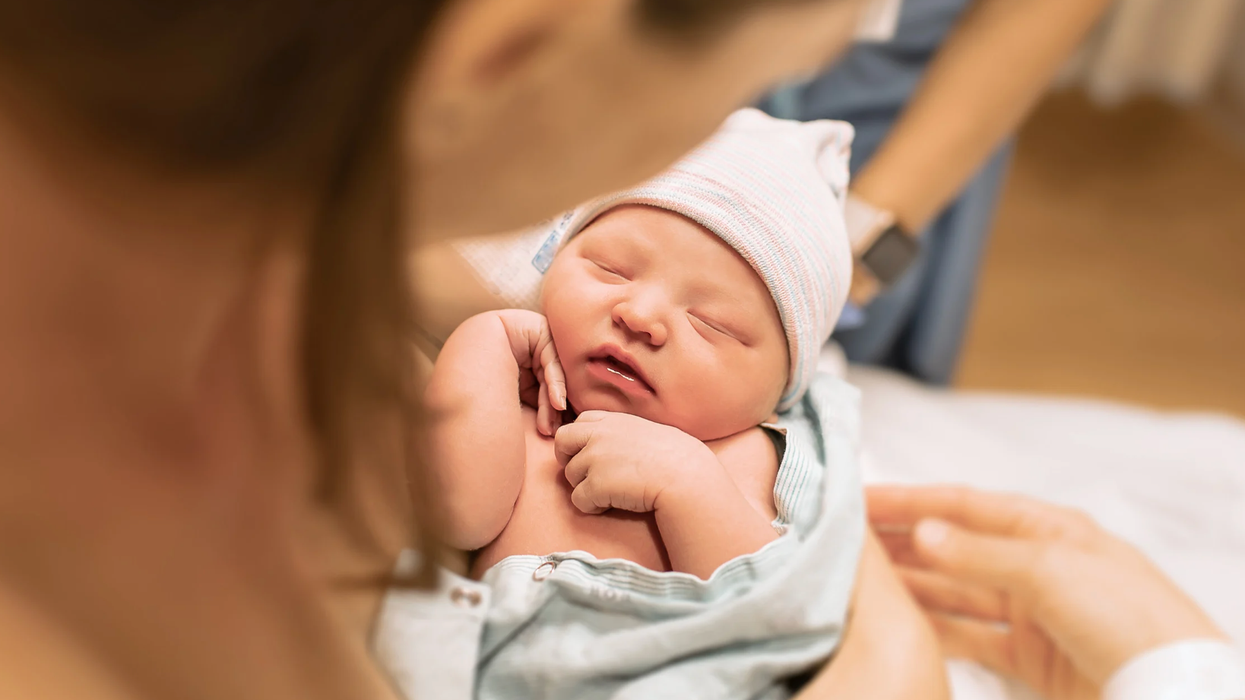On November 8, all eyes of the abortion debate will be on Mississippi voters. They'll be casting their ballots for or against Proposition 26, also known as the Personhood Amendment, which would grant fertilized eggs constitutional rights as people. The amendment would effectively ban not only abortion, but other far less controversial things like morning-after pills, the IUD, and in-vitro fertilization.
This is the most radical attempt to outlaw abortion since Roe v. Wade, and it's the most likely measure of its kind to declare victory. Here's why Prop 26 is different—and why it may be the rudest awakening the pro-choice movement has had in years.
It sidesteps the pro-life movement's current M.O. Since the 1970s, anti-choice legislators have been chipping away at abortion rights piecemeal, requiring sonograms and additional counseling, limiting insurance coverage, cracking down on second-term abortions, imposing regulations on clinics and parental consent laws. Prop 26 abandons the death-by-a-thousand-cuts strategy by outlawing—and criminalizing—abortion outright.
It's a direct challenge to Roe v. Wade. Even if Mississippi votes yes, the measure will immediately face legal opposition. Indeed, that is the movement's intent. The very language of the amendment is lifted from Supreme Court Justice Harry Blackmun's caveat in the landmark decision legalizing abortion—that the case would “collapse” if “this suggestion of personhood is established… for the fetus.” This is exactly what's stirring the nerves of the more moderate faction of the pro-life movement, who doubt they have the legal backing to overturn Roe. But to anti-abortion purists, the amendment is a stepping stone to their very own Supreme Court case.
It encroaches on uncontroversial issues. The amendment's definition of "personhood" is so all-encompassing that it politicizes birth control, miscarriages, IVF, and other medications and procedures that are, as of now, pretty unobjectionable. Some forms of birth control, like the IUD and the morning-after pill, work by preventing implantation, not fertilization, so by its own logic, the amendment would disallow them. It would open up any miscarriage to criminal investigation: Did she have too much to drink one night? Was she confiding in a friend about not wanting a child? Paradoxically, it would also limit the options of women desperate to have a child through in-vitro fertilization. The procedure involves attempting to implant at least one fertilized egg out of many, meaning the remaining embryos are frozen or discarded. Using fewer eggs would drastically reduce a woman's chance of pregnancy.
Some spokespeople from the personhood movement swear Prop 26 won't intrude in, but others are pretty clear about their aims. Keith Mason, the president of Personhood USA, characterized IVF to the Daily Beast like this: “The creation of 30 or 60 embryos and then picking through them to see which ones are most likely boys or girls, or basically looking at the ones you want to give life to and destroying the rest." He's expressed similar doubts about birth control. “Certainly women, my wife included, would want to know if the pills they’re taking would kill a unique human individual,” he said in an interview with NPR.
By definition, Prop 26 affects huge swaths of the population, many of whom are as anti-abortion as they come. But lots of voters aren't aware of the far-reaching implications of the amendment; all they hear is "Stop killing babies."
It could actually pass. Personhood USA has introduced similar measures in the legislatures of states like Georgia, Iowa, Texas, and Montana, which have rejected the bills and amendments. In 2009, a personhood bill passed through the House in North Dakota (but was defeated in the Senate). Colorado had a similar amendment on the ballot in 2008 and again in 2010, but it was roundly defeated in both elections.
Mississippi—which has a more rightwing, church-backed electorate than any of these states—may vote "yes." Gallup ranked it the most conservative state in the entire country this year. Even Mississippi Democrats are typically pro-life. Political scientists are predicting that the bill will likely get enough votes to pass.
If Missisippi does embrace Prop 26 in November, it still may not see the light of day. But it will underline a truism of abortion politics all too often ignored: even Roe v. Wade isn't set in stone.
Photo via (cc) Flickr user Missionaries to the Preborn
















 Otis knew before they did.
Otis knew before they did.